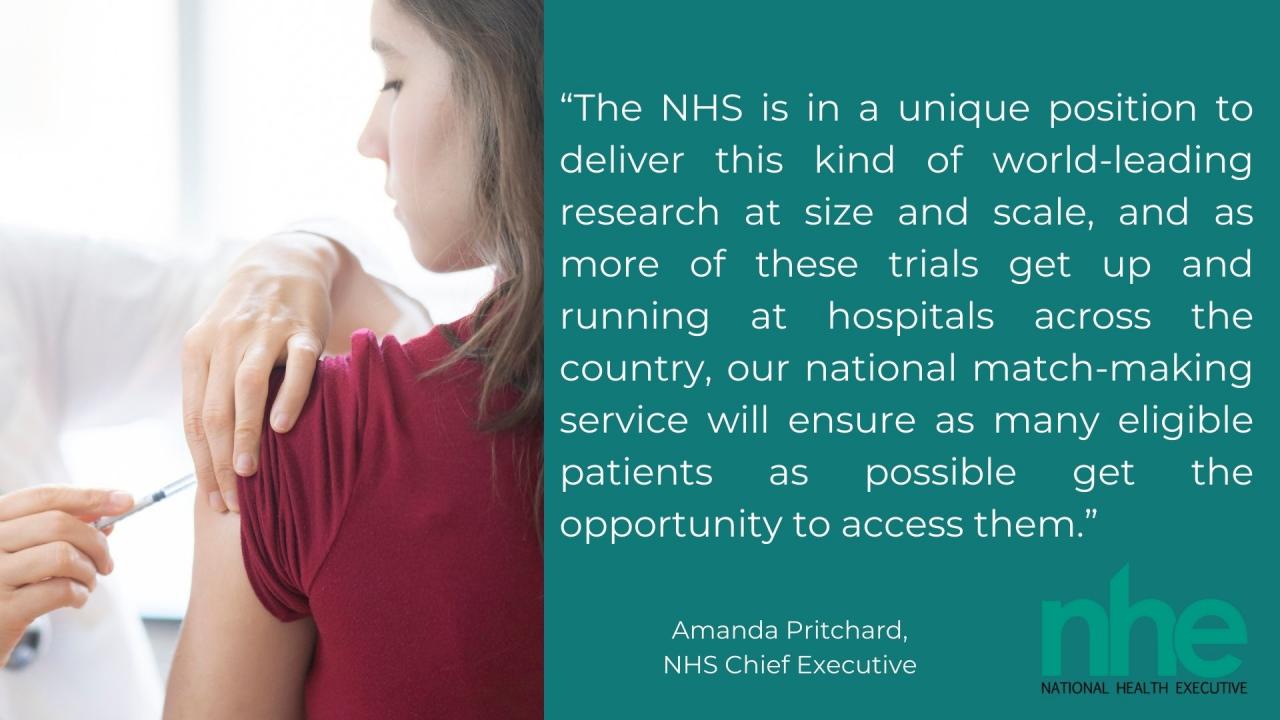Thousands of cancer patients in England will gain fast-track access to trials of personalised cancer vaccines as the NHS launches a world-leading “matchmaking” service to find new lifesaving treatments.
The NHS has already treated its first patient in England with a new personalised vaccine in a clinical trial as part of NHS England’s new Cancer Vaccine Launch Pad.
Elliot Phebve, 55, was treated with a personalised jab against his bowel cancer at University Hospitals Birmingham NHS Foundation Trust, which is one of several sites participating in the colorectal cancer vaccine trial.
The father of four, who is a university lecturer, said: “Taking part in this trial tallies with my profession as a lecturer, and as a community-centred person. I want to impact other people’s lives positively and help them realise their potential.
“Through the potential of this trial, if it is successful, it may help thousands, if not millions of people, so they can have hope, and may not experience all I have gone through. I hope this will help other people.”
The trial is one of several taking place in NHS trusts across the country to treat different types of cancer, with thousands more patients willing to participate in clinical trials to be fast-tracked to one of the nearest participating hospitals.
Participating patients will have a sample of their cancer tissue and a blood test taken, and if they meet a trial’s eligibility criteria they will be referred to their nearest participating NHS site.
30 hospitals in England are already signed up to the pioneering Cancer Vaccine Launch Pad, with more sites to join over the coming months.
The vaccines under study in the colorectal cancer trial are based on mRNA, the same technology used for the Pfizer-BioNTech COVID-19 vaccine. They are created by analysing a patient’s tumour to identify mutations specific to their cancer, from which medics create an individualised vaccine.
Amanda Pritchard, NHS chief executive, said: “Thanks to advances in care and treatment, cancer survival is at an all-time high in this country, but these vaccine trials could one day offer us a way of vaccinating people against their own cancer to help save more lives."

Professor Peter Johnson, NHS national clinical director for cancer at the NHS said: “We know that even after a successful operation, cancers can sometimes return because a few cancer cells are left in the body, but using a vaccine to target those remaining cells may be a way to stop this happening.
“Access to clinical trials could provide another option for patients and their families, and I’m delighted that through our national launch pad we will be widening the opportunities to be part of these trials for many more people, with thousands of patients expected to be recruited in the next year.”
Trials have already enlisted dozens of patients, but the majority of patients are expected to be enrolled from 2026 onwards. Last year, the government signed an agreement with BioNTech to provide up to 10,000 patients with precision cancer immunotherapies by 2030.
The investigational vaccines are being jointly developed by BioNTech and Genentech and are yet to be approved by regulators.
Image credit: iStock



















